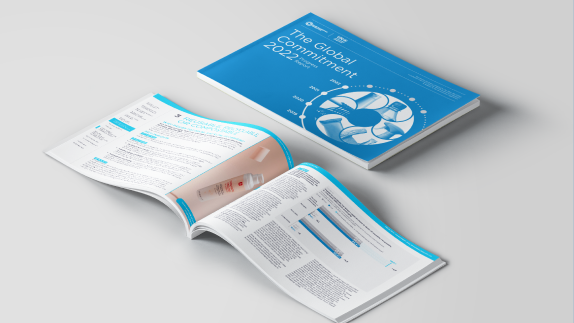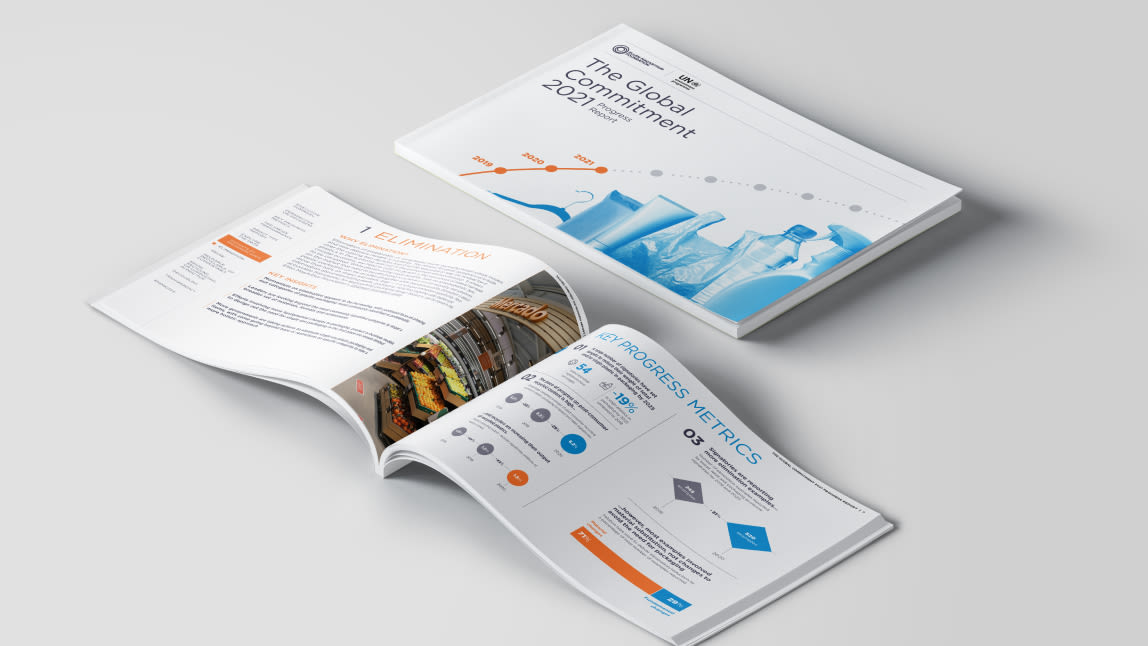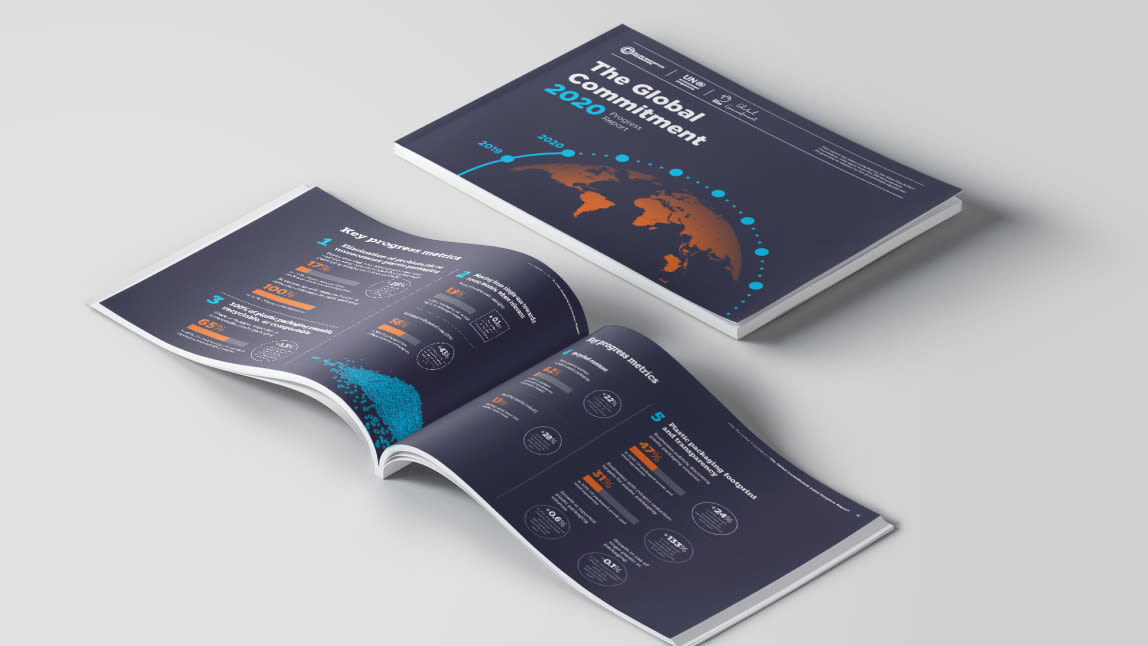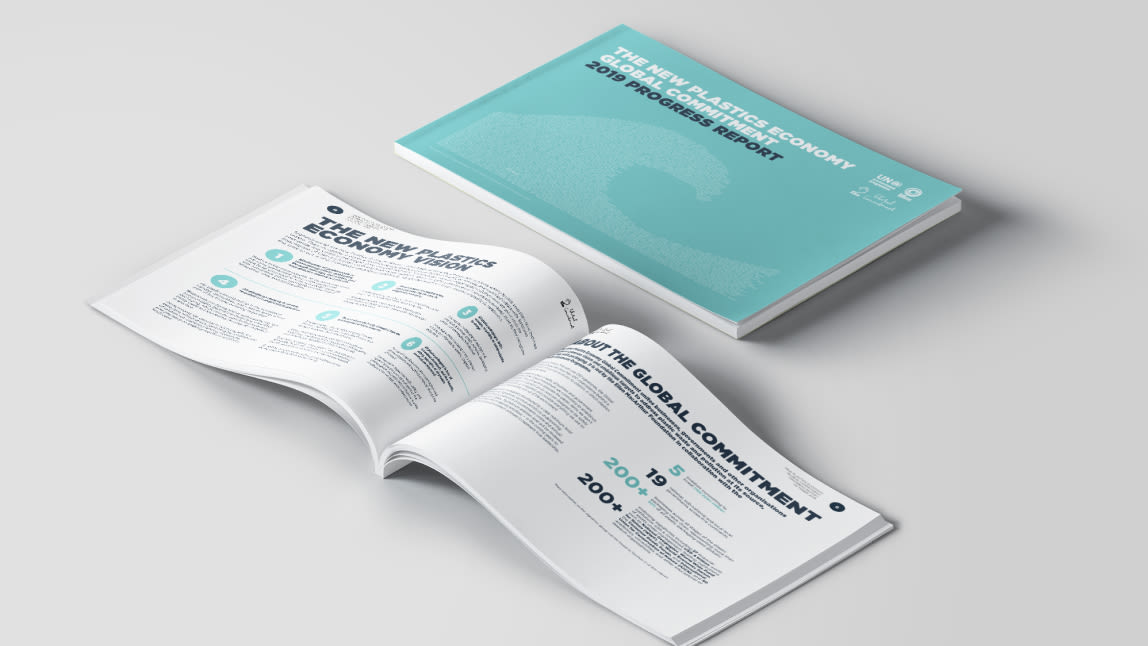Led by the Ellen MacArthur Foundation, in collaboration with the UN Environment Programme, the Global Commitment has united more than 500 organisations behind a common vision of a circular economy for plastics. Driven by the goal of tackling plastic pollution at its source, companies representing 20% of all plastic packaging produced globally have committed to ambitious 2025 targets to help realise that common vision. This fourth annual progress report looks at how these signatories are faring against these targets.
Perspective on progress

Key progress metrics
What progress are top FMCGs making on plastic packaging?
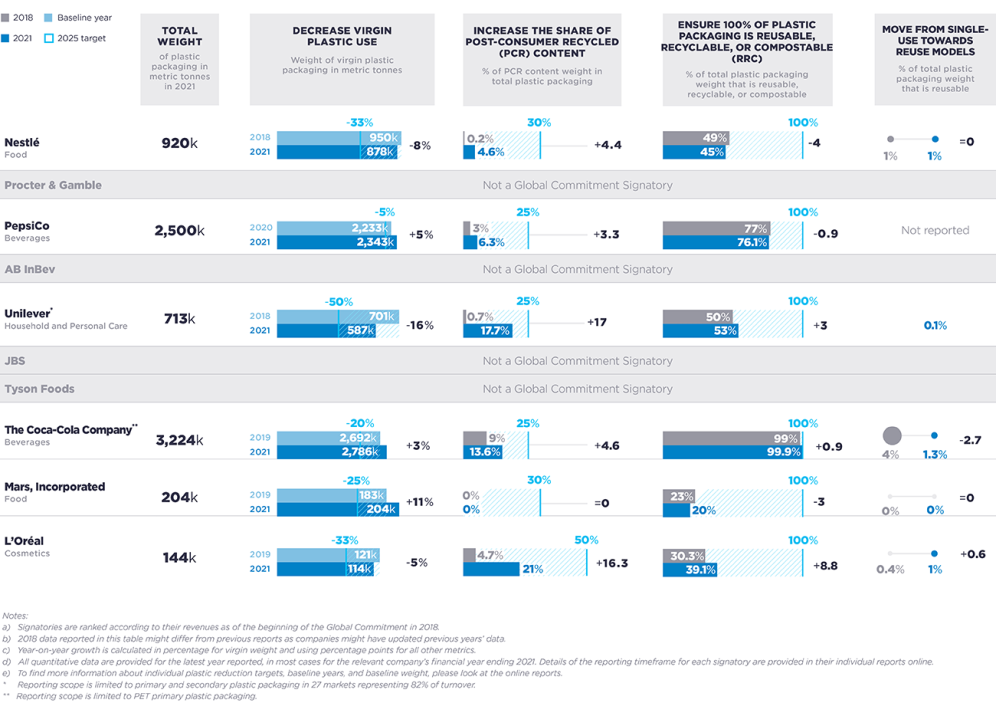
What is the Global Commitment?
The Global Commitment is led by the Ellen MacArthur Foundation, in collaboration with the UN Environment Programme. Through the Global Commitment, businesses and governments commit to change how we produce, use, and reusereuseThe repeated use of a product or component for its intended purpose without significant modification. plastic. They will work to eliminate the plastic items we don’t need; innovate so all plastic we do need is designed to be safely reused, recycled, or composted; and circulate everything we use to keep it in the economy and out of the environment.
The Global Commitment has already mobilised over 500 signatories that are determined to start building a circular economycircular economyA systems solution framework that tackles global challenges like climate change, biodiversity loss, waste, and pollution. It is based on three principles, driven by design: eliminate waste and pollution, circulate products and materials (at their highest value), and regenerate nature. for plastic. These include companies representing 20% of all plastic packaging produced globally, some of which are well-known consumer businesses such as L’Oréal; Mars, Incorporated; Nestlé; PepsiCo; The Coca-Cola Company; and Unilever; the world’s largest retailer - Walmart; major packaging producers such as Amcor and Berry Global; and the largest resource management specialist - Veolia.

